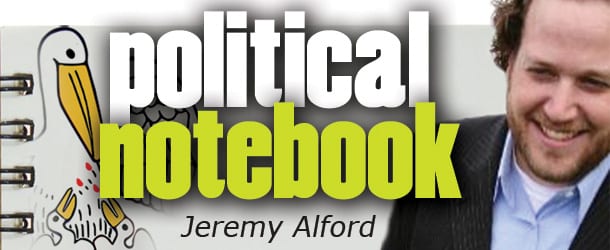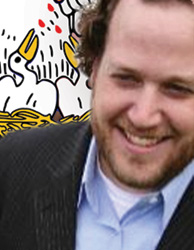Less than 24 hours after the Legislature adjourned its special session, lawmakers serving on the budget committee gathered at the Capitol to hear Gov. John Bel Edwards’ spending proposal for the next fiscal year.
Forty days will separate the close of the special session and the opening of the regular session on April 10.
Once more a budget deficit, this time one in the $400 million range, will take center stage in the coming session. It’s for the fiscal year that begins July 1.
During the special session, lawmakers had to close a $304 million gap for the current fiscal year.
The governor’s proposal for the next budget cuts short funding for the TOPS scholarship program and reduces money for health care services for the poor. Lawmakers, however, will have opportunities to increase revenue for the 2017-18 budget, chiefly through tax changes.
“This is not the budget proposal I want to present and [it] should serve as a starting point for the Legislature,” Edwards said, adding, “My goal is to fully fund critical priorities of our state, most notably the TOPS program and transportation. But we cannot do that without making reforms and without additional revenue.”
What those reforms might be is unknown. But the administration intends to rely upon recommendations drafted by a budget and tax task force that met throughout last year.
During an interview on The LaPolitics Report podcast, Revenue Secretary Kim Robinson said the governor’s fleshed-out plan, which will be delivered at a later date, will carry with it very specific directions.
“The governor looked at a menu of options last year because we knew that raising revenue was not going to be popular,” Robinson said. “We wanted to give the Legislature options to fill what was needed in terms of the budget deficit.
“This year we are going in with a different perspective … I think you’ll see us come forward with a proposal that says these are these things we think we should do. But we’re always open to suggestions from lawmakers.”
Jan Moller, the director of the left-leaning Louisiana Budget Project, found aspects to cheer and criticize in the governor’s 2017-18 budget proposal. He said it cuts money for public colleges and universities, reduces funding for safety net hospitals and fails to keep up with the rising cost of K-12 education. “Nor does it address the long backlog of needs that have gone neglected in recent years: Need-based college aid, early childhood education for children from birth to 3, home- and community-based services for people with disabilities and basic upkeep of roads, bridges and college campuses.”
Yet he also offered this take: “Compared to what we’ve seen in recent years, this is a solid and responsible budget plan that tries to limit the pain of cuts to state services given the current revenue picture. But it doesn’t come close to taking Louisiana where it needs to go and leaves too many of our people behind.”
Casting a long shadow over the approaching regular session is $1.2 billion in temporary taxes that come off the books in 2018. The governor has said he hopes lawmakers will address that financial challenge fully during the regular session. But conservatives in the Republican-controlled Legislature have already voiced concerns about increasing taxes.
Tight Time Frame For Session Negotiations
Gov. John Bel Edwards is expected to rollout his plan for the spring regular session toward the middle of this month, possibly before the Baton Rouge Press Club. The final touches are being made to the governor’s plan.
That will give lawmakers less than a month to digest the plan before the regular session convenes on April 10. The administration, however, appears ready to start talks sooner than later.
The governor will start bringing groups of legislators and other stakeholders into his office to begin — and in some cases continue — discussions.
Trump Could Show Hand On Louisiana Case
President Donald Trump’s administration could offer a filing in an appeal that the Louisiana Republican Party is pushing before the U.S. Supreme Court. The case challenges the federal ban on unlimited donations to political parties.
Trump’s Justice Department has until March 13 to file its response to a ruling last year from a three-judge D.C. District Court that upheld the limits enforced by the Federal Election Commission. That response could be an indication of whether the Trump administration wants to challenge or protect the campaign finance law.
It could also place the Louisiana GOP at the epicenter of what could become another national debate over political donations. The state Republican Party argues that donations to its coffers are equivalent to free speech, which is an argument the Supreme Court warmed to in 2010 when it paved the way for super PACs, or political action committees, to raise unlimited dollars to support or oppose candidates.
AFP Targets Session Again
The Louisiana chapter of Americans For Prosperity is preparing to be just as involved in the upcoming regular session of the state Legislature as it was in the 2016 sessions. That means targeted mailers, door-to-door operations and robocalls in legislative districts as well as digital media buys.
State director John Kay said AFP will make a big push against any kind of gas tax and any effort to extend the additional penny sales tax past 2018.
“We could be interested in broadening the sale tax base if it’s coupled with a decrease in the sales tax rate or even an income tax change that moves us to revenue neutral,” said Kay.
AFP will likewise advocate for spending reforms in the regular session.
Political History: The First Governor To Lose
March 7 was the 187th anniversary of the 1830 death of Gov. Jacques Villeré, who was the first to achieve three very important and very different statuses among Louisiana’s chief executives.
Villeré was the first gubernatorial candidate in Louisiana to lose a race. He lost to the state’s first governor, William C.C. Claiborne, who captured more than 70 percent of the vote on the first ballot following statehood.
Not deterred, Villeré ran again four years later in 1816 and captured a razor-thin victory over Joshua Lewis, a judge, by 169 votes. There were 2,314 votes cast for Villeré and 2,145 for Lewis.
At the time, sharp political lines at the time were drawn between French residents and Spanish Creoles, with Villeré falling into the latter category. In fact, Villeré was the first Creole elected governor in Louisiana.
More important, Villeré was the first Louisiana-born governor to take the office. He was born in what is modern-day Kenner.
He was arguably one of the most important figures during Louisiana’s early statehood. He served as a member of the convention that penned the first state Constitution.
He served only one term in office. When he tried to make a comeback bid in an 1824 special election for governor, Villeré never made it to the ballot. He died at age 68 — just four months before the election.
Dems Get National Spot
Louisiana Democrats now have a player on the national party scene. In Atlanta, state Sen. Karen Carter Peterson of New Orleans, chairwoman of the state party, won an elected leadership spot on the Democratic National Committee. She is the new vice chair of civic engagement and voter registration.
Peterson replaces political analyst and New Orleans native Donna Brazile.
As for the top national position, Tom Perez, the labor secretary under former President Barack Obama, was elected DNC chairman.
For more Louisiana political news, visit www.LaPolitics.com or follow Jeremy Alford on Twitter @LaPoliticsNow.














Comments are closed.